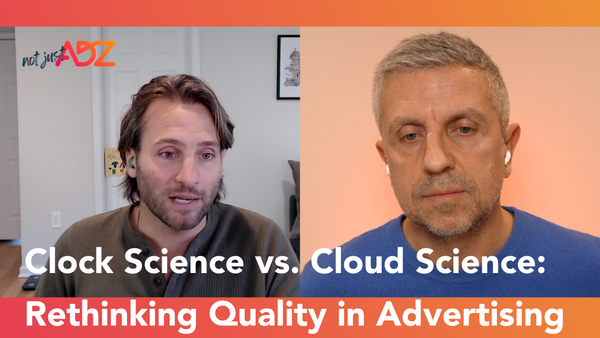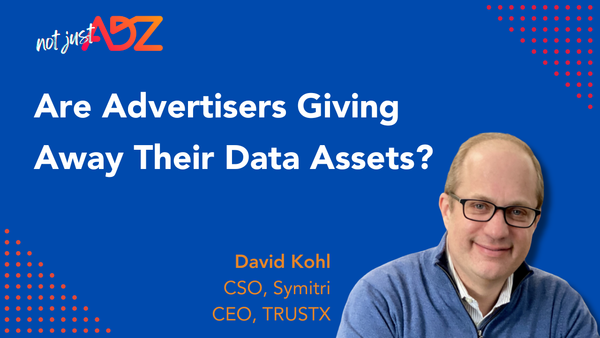A Joycean Stream Of Consciousness On Apple’s ATT | AdExchanger
The hidden agendas of advertising technology companies rising against Apple’s ATT (App Tracking Transparency).

Like an oil corporation opposing the rise of renewables or a tobacco company lobbying for its own cause, a reactionary wing of digital advertising is struggling to accept the radical change needed in the way audience data is handled.
Fighting for self-preservation is a common theme in digital advertising’s recent years. A few companies, but also individual ad tech and media executives and developers, have been lashing out against Apple’s ATT. They accuse Apple of taking advantage of its position, exerting its dominance across the app ecosystem.
One of the recurring issues of ad tech — and its biggest limitation — is the sect’s limited perspective on the larger world. An echo chamber oblivious of a larger universe where audiences don’t pick up their devices to click on ads and consider watching promotional videos their top priority.
The unforgivable sin for Apple? “App Tracking Transparency requires apps to get the user’s permission before tracking their data across apps or websites owned by other companies.”
Even the man on the street has taken note that the Apple ecosystem is built on user experience and trust: why would Apple want to undermine that USP [unique selling proposition]? In the name of programmatic advertising?
If we considered the programmatic open marketplace (or whatever it is being rebranded to: open web anyone?) as the unchangeable lynchpin of the advertising universe, despite its commoditization of media and the cascading privacy issues that triggered privacy regulations, maybe this complaint against Apple’s opt-in requirement would make sense. But the world is moving forward. The “open web” must evolve — or sink into a swamp and disappear.
Some ad tech executives’ tunnel vision reached a whole new level when Apple’s reminders to people who just bought an Apple device, which shared information about their free trials to Apple TV or Apple Fitness+, were used as a proof of Apple’s double standards in advertising.
Once again, “the sect” fails to see that the Apple environment is much more than data collection and advertising slots.
I am fascinated by the reactions to Apple ATT I read and hear from all parts of the industry. These observations are powerful insights into the psychology and approach of many in ad tech, and show the real internal obstacles to rethinking digital advertising.
One of the more ingrained principles is the concept of data collection as the reason to exist for an advertising-funded media owner or app. They can’t comprehend how companies (i.e., Apple) can make a different decision and prioritize their audience’s privacy and experience.
“There must be a cunning grand scheme behind it!”, people say about the Apple move. Or, if you listen to others, “They must be doing so with the goal to have the total monopoly of ads and apps in their platform.”
Luckily, not everybody — certainly not Apple customers — misidentifies the monetization channel (advertising) with the product.
My own Joycean “stream of consciousness” on the topic goes on:
- Some media owners have such low confidence in their own relationship with the audience, that they assume that getting user consent is unreachable.
- Others have such low confidence in the quality of their products that they believe the only way they can generate revenue is by using user data without consent.
- Many have no confidence in their own apps’ contextual appeal and discount contextual advertising from the start.
From a user perspective, ATT will encourage:
- Fewer, higher quality apps.
- Renewed focus on product over data monetization.
- Better communication with the audience and higher levels of transparency.
- Increased user knowledge about the use of online personal data.
The current narrative against Apple’s ATT is based on such a partial interpretation, and with such a strategic forgetfulness of what has brought the industry to this point, that it sounds more like the rant of carthorse breeders when the car was invented.
Originally published at https://www.adexchanger.com on May 7, 2021.





